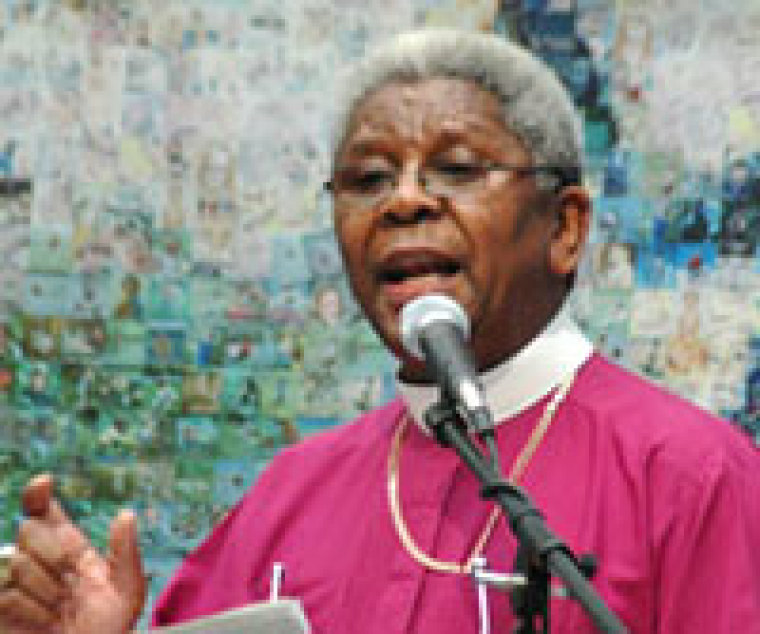
The Anglican Archbishop of Cape Town Njongonkulu Ndungane, notorious among conservative African Anglicans for his liberal stance on homosexuality, has announced his plans to retire by 2008.
"According to the canons of our church, I could continue to fill it until I am seventy,” said the 65-year-old Archbishop in a May 18 press release. “I have decided that the time is coming for me to step down.”
Ndungane began leading the Anglican Province of Southern Africa in 1996, inheriting the 4-million-member diocese from the renowned Nobel Peace laureate Archbishop Desmond Tutu, who successfully fought for the end of legalised racism in apartheid South Africa.
Throughout his tenure, Ndungane has successfully separated the massive Southern African diocese into three, more manageable parts, and rallied on behalf of those suffering from HIV/AIDS.
However, since the 2003 consecration of openly gay Episcopal Bishop Gene Robinson, Ndungane has made his mark as Africa’s liberal voice of support for homosexuality.
"The Anglican Communion should be on the forefront of fighting social ills and not bothering about what Gene Robinson may be doing or not doing," Ndungane said in an interview with The Washington Post last week. "He has been elected by his people and the people are comfortable with that."
The heads of most Anglican provinces in Africa, a continent where homosexuality is a criminal offense in 29 countries, have alienated Robinson and the U.S. Episcopal Church for violating the global church’s standards of ordination.
Peter J. Akinola, the archbishop of Nigeria and head of the conservative pack, has often pointed his arrows at Ndungane as well, accusing him of “failing to grasp the nature of the issues at stake” and for supporting a “Satanic attack on God’s church.”
Despite such criticism, Ndungane has continued to call homosexuality a “pastoral, secondary problem,” and has urged Anglicans to return to the “life and death issues of this world,” according to Washington Post.
The election of Ndungane’s successor will take place in 2007, and will be made official after the 2008 Lambeth Commission – a gathering of all of the world’s Anglican bishops, held once every ten years.
Ndungane said he plans to remain active even after his retirement.
"Happily for me, there is life after being an Archbishop and there are many projects I wish to pursue once I have retired," he said. "I will continue my interest in issues of development. More specifically I intend to continue my involvement with the African Monitor - the stand-alone body I have set up to monitor donor funding and the use of that funding in Africa."
Winston Hugh Njongonkulu Ndungane was born in Kokstad, South Africa, on the April 2, 1941. From August 1963 to August 1966, he served a three-year sentence on Ruben Island as a political prisoner. He was converted in prison.
Ndungane was ordained a priest of the Anglican Church in July 1974 and was consecrated bishop of Kimberley and Kuruman in September 1991. In September 1996 he became Archbishop of Cape Town. The archbishop is married to Nomahlubi and has two children, Luswazi and Vusi.
Elaine Spencer
Christian Today Correspondent